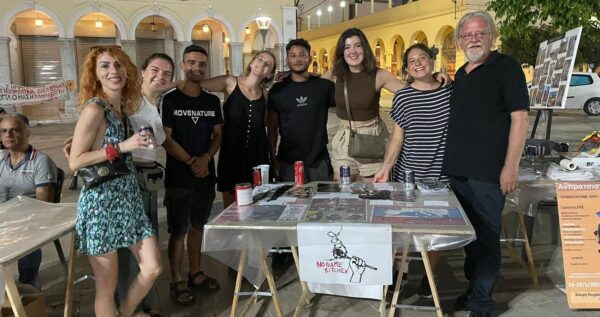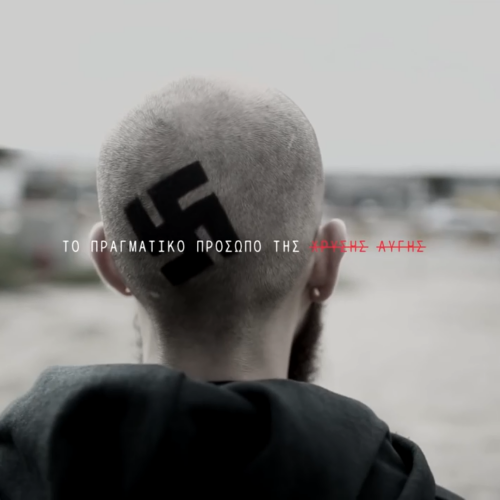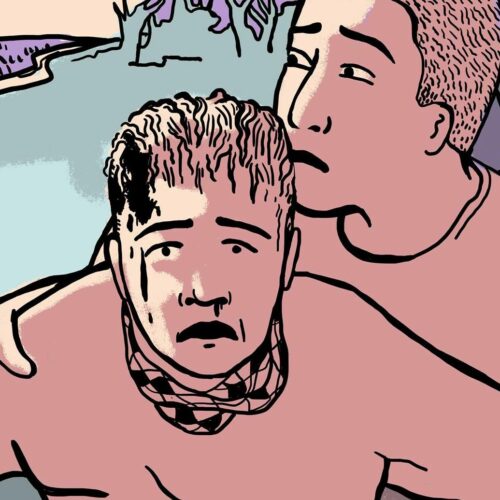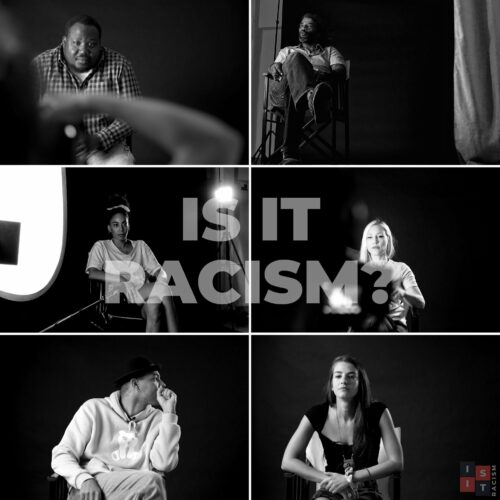No Name Kitchen is a civil movement oriented to support human beings on their right to move freely when seeking for a better life. NNK was born spontaneously when people seeking for refuge and international activists met in Belgrade, in winter 2017, and decided to start cooking together.
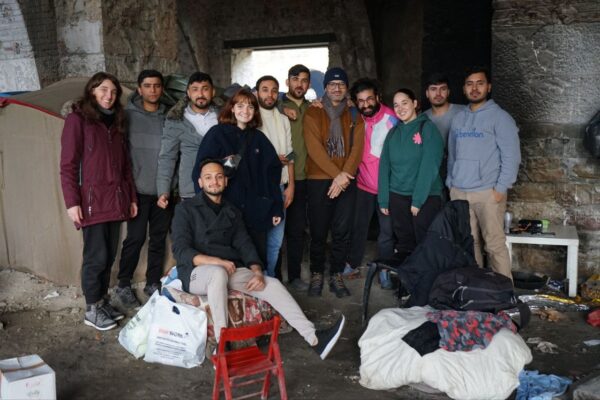
Since then, NNK works in hotspots alongside the Balkan and Mediterranean routes where People on the Move (PoM) face systematic criminalization and violent pushbacks. Their vision is to transform the violent, racist and sexist borders´regime into safe, non-discriminatory and inclusive migratory processes through political action, and the democratization of the access to resources for people’s self-protection.
NNK follows a multi-hub structure composed by different teams where PoM and field-based activists coexist 24/7 at the borders, identifying gaps and designing together actions with a horizontal and participatory approach. The work is mainly divided in three lines of action: border-violence reports, distribution of protection packs and legal clinics. In operational terms, each team member (volunteer) assumes a specific role, called focal point (e.g., reports focal point, legal focal point, admin focal point, etc.), and works in a border-cross connection with a technical reference (a long term volunteer with a part-time paid position), and activists from other NNK teams who have his/her/their same role. This is aimed at boosting the pollination of NNK´s know-how. For example, the violence reports technical reference and the reporters at the Serbian, Bosnian, Croatian, Italian and Moroccan borders, have weekly assemblies to discuss, define and follow common guidelines and testimony-collection methodologies in order to publish more solid and accurate violence reports. This networking is continuous in all of NNK´s scopes of action (legal, logistics, comms, etc.) and it often includes other collectives and freelance activists, developing a fertile ground of shared mistakes and lessons learnt.
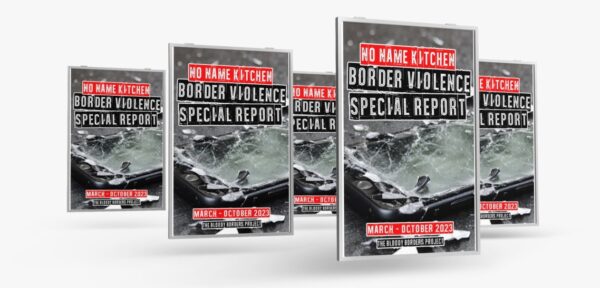
On an administrative level, NNK sets up instrumental legal entities where needed in order to provide a legal framework for the actions on the spot. These entities (registered as non-profit associations) have boards that are made up of local activists involved in the operational display of each team, and who are in permanent interaction with the focal points and the references to co-develop caretaking and legal protection mechanisms for the team members.
NNK is a grassroots movement that relies on crowdfunding campaigns, fundraising events (screening documentaries, merchandising, etc.), and small grants from groups and private foundations (e.g., Pende, Die Schwelle, ForRefugees).
NNK does not apply for funding from public agencies that perpetrate or are complicit with the border violence we aim to stop (i.e., EU institutions and its member-states agencies). This means full autonomy and freedom to speak out and loud, to point out those responsible and to escape from the traditional “donor-pays, donor-decides” paradigm. However, it also entails a permanent struggle to cover our operational budget, with little access to relevant long-term grants, and the preference of most of the funders to support service provision rather than egalitarian activism.
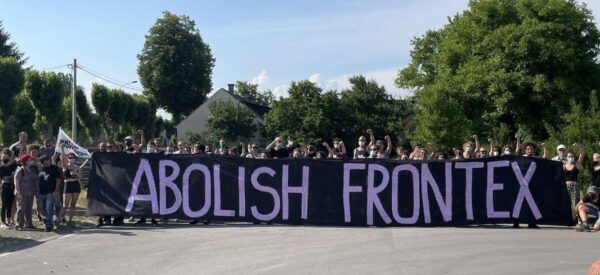
On Border Violence & Migrant Solidarity
Border-related violence is an intersectional system of oppression that has multidimensional negative impacts worldwide. It is based on defending the privileged global- north status quo, while ignoring the importance of global inequality and power imbalances as deep-rooted causes of the migratory flows. Based on this assumption, NNK identifies structural and institutional border violence as the core systemic injustice that has to be approached, defied and transformed by daily actions.
In this regard, their outcomes pathway foresees that having an impact on one main root cause of this systemic violence: the anti-migrant political sentiment in the European civil society at large.
Border violence is the tip of an iceberg made up of postcolonial racism and aporophobia that divides citizens in hierarchical categories according to their origin, their status and the colour of their skin. This division, based on stigmatizing the newcomers, is not a coincidence but a necessary element to keep the status quo of the groups of power, who control the mass media, and therefore, the capacity to build a state of fear and refusal against the people on arrival. This sentiment is reflected in daily life, but particularly on the legislative performance of most of the politicians representing EU member states at the institutions, who do not prioritize the respect to human rights but rather the national sovereignty and their own options to be re-elected. Their theory of change works quite well, it must be said. However, it is time to tackle it, and NNK is joining this fight.
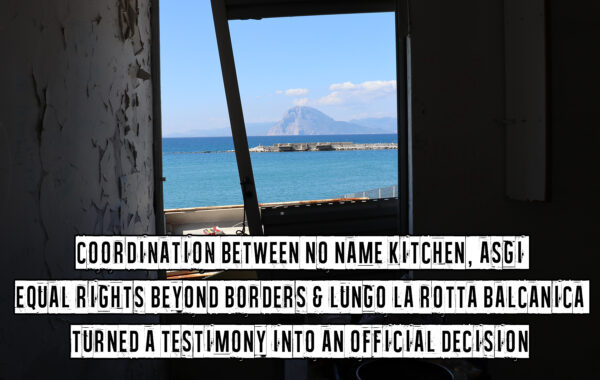
NNK contributes to this by facilitating access to trustful and reliable information about the illegalities that are being committed every day at the EU borders. NNK´s theory of change starts by collecting testimonies of violence and denouncing it through the publication of border violence reports, launching raising awareness campaigns and conducting street advocacy actions to provoke changes in people´s emotional, rational and political stances. The rationale behind this is based on the impact that key messages have on civil society as triggering factors —on people who remains neutral because they are missing two paramount pieces of information, considered tipping triggers:
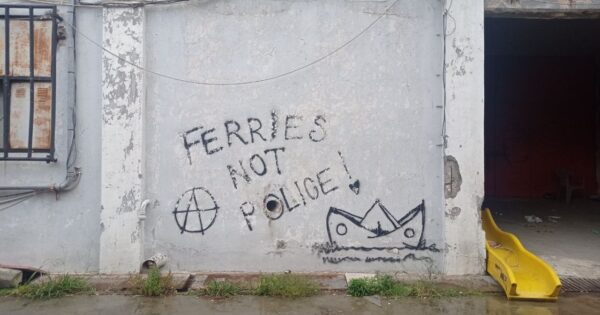
1) The legal element: In Europe, the poor access to asylum and guardianship systems does not respect national and international human rights law. According to the Geneva Convention (Article 33), signatory countries must respect the principle of non-refoulement, including the right of all persons to seek asylum, but this is systematically violated. Another binding legislative framework that authorities do not respect is the European Convention on Human Rights (Article 3 ECHR), which expressly prohibits torture and inhuman or degrading treatment, and the prohibition of collective expulsions (Article 5 UDHR). This simple information is still not accessible to most of the people and it could bring a change on those who request a policymaking that is in accordance to law. In this regard, NNK aims to include a legal analysis in each violence report, describing in short, easy, but solid terms, why it is illegal to conduct a pushback, even if the victim has crossed a border in an irregular manner.
2) The economic element: most of the people participating in NNK´s surveys have no idea on how their taxes are being used to torture people at the EU borders. Our pre-requisite assumes that if people is afraid of migrants because of economic reasons, they should be also alerted on how their pockets are paying for this illegal and institutional violence. The NNK crew don’t want to persuade other activists, but to shake the neutrals, provoking a chain effect from the social fabric into the political level.
